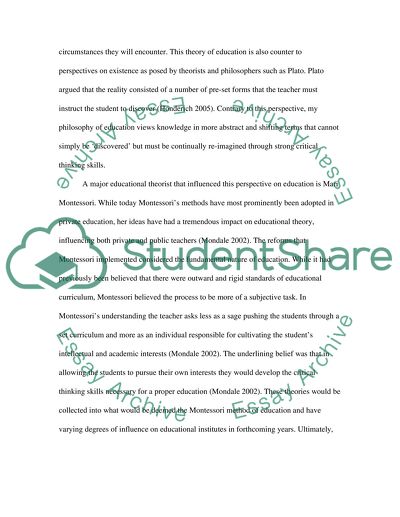Cite this document
(“Personal Philosophy in Education Essay Example | Topics and Well Written Essays - 1500 words”, n.d.)
Personal Philosophy in Education Essay Example | Topics and Well Written Essays - 1500 words. Retrieved from https://studentshare.org/education/1433469-personal-philosophy-in-education
Personal Philosophy in Education Essay Example | Topics and Well Written Essays - 1500 words. Retrieved from https://studentshare.org/education/1433469-personal-philosophy-in-education
(Personal Philosophy in Education Essay Example | Topics and Well Written Essays - 1500 Words)
Personal Philosophy in Education Essay Example | Topics and Well Written Essays - 1500 Words. https://studentshare.org/education/1433469-personal-philosophy-in-education.
Personal Philosophy in Education Essay Example | Topics and Well Written Essays - 1500 Words. https://studentshare.org/education/1433469-personal-philosophy-in-education.
“Personal Philosophy in Education Essay Example | Topics and Well Written Essays - 1500 Words”, n.d. https://studentshare.org/education/1433469-personal-philosophy-in-education.


